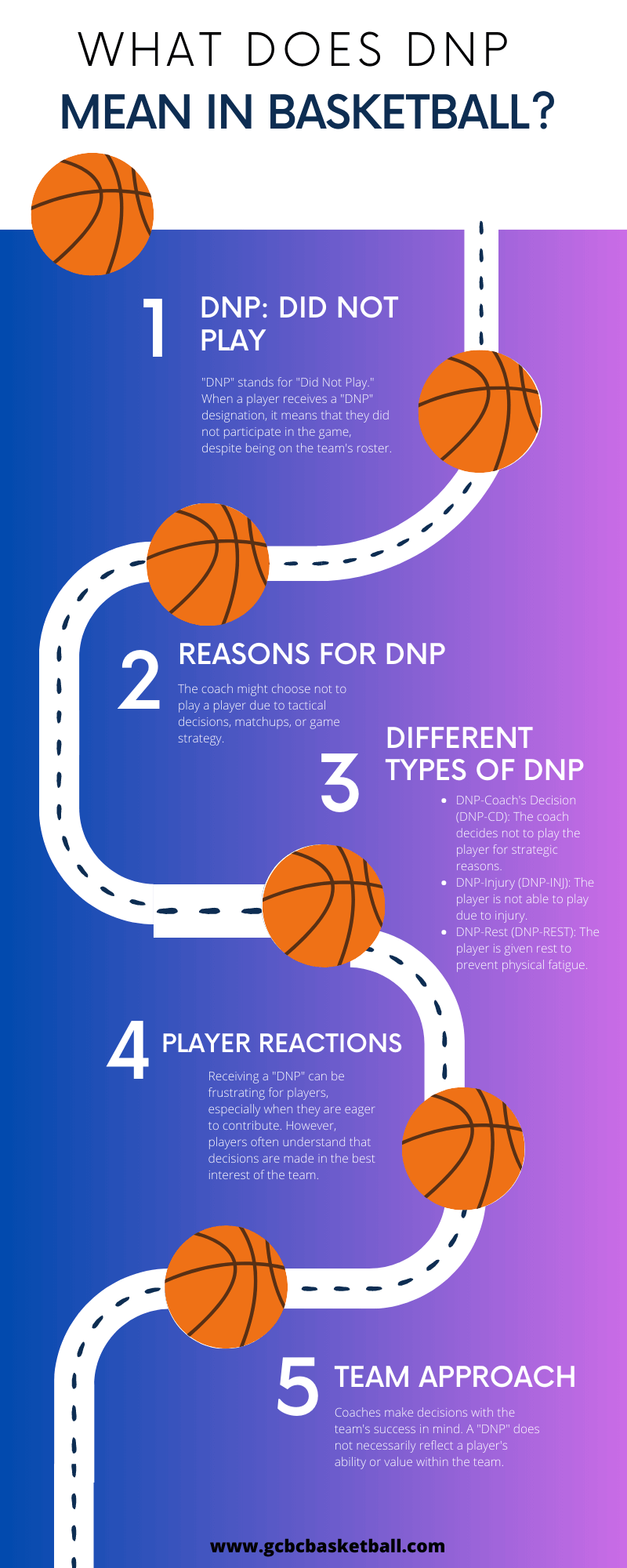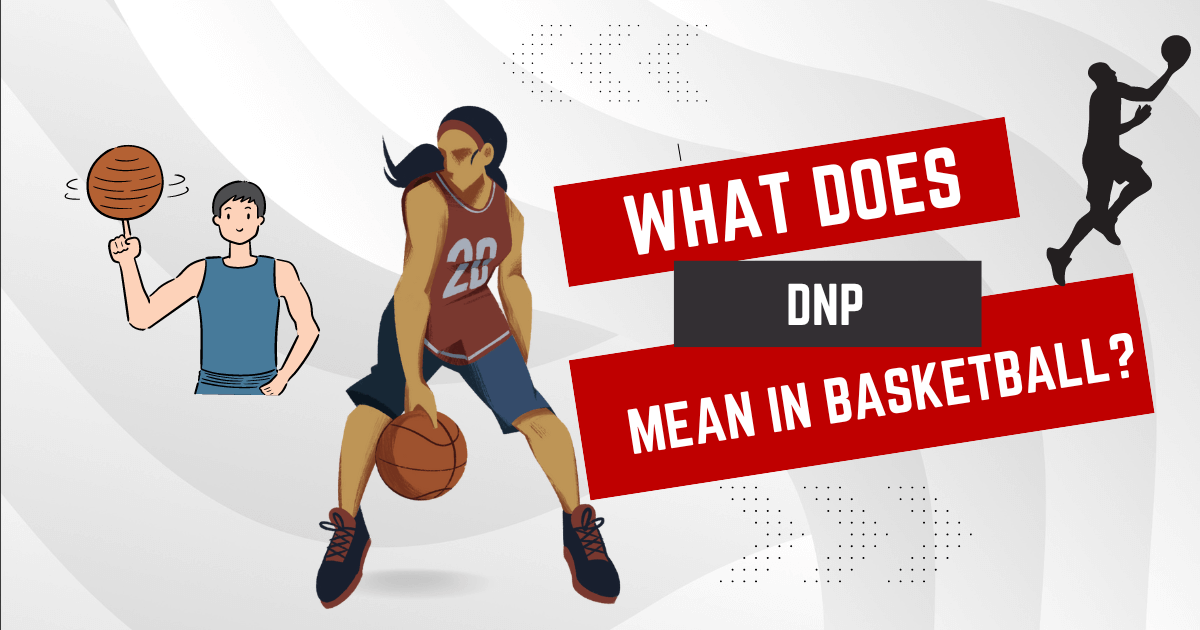The acronym “DNP” is a common one used in the world of basketball. DNP stands for “Did Not Play” and indicates why a player wasn’t on the court during a game. Knowing what the acronym stands for can be useful when trying to understand why a certain player was absent from the game and can help fans better analyze team performance.
NBA Use Of DNP

The NBA has had a long history of using the acronym DNP in its box scores. DNP indicates when an active player cannot play in that particular game. This could be due to various reasons, such as injury, the coach’s decision, or even disciplinary action. In recent years, NBA teams have been relying more heavily on this designation to manage their rosters and maximize production by limiting playing time for certain players.
As with any tool, there are pluses and minuses associated with its use – including how it impacts individuals, team chemistry, and overall strategy. Understanding why teams choose to use the DNP designation can help basketball fans better understand the game they love.
College Basketball Use Of DNP

College basketball teams utilize DNP more often than ever as they look for ways to manage their rosters and keep players healthy. A recent survey by the NCAA revealed that over half of all Division I teams had used ‘DNP’ at least once in the past season.
The use of DNP has both fans and critics, with some citing it as a way for coaches to unfairly manipulate their rosters and hurt a player’s performance or morale. Others argue that it gives coaches greater flexibility in managing their team, allowing them to rest certain players if needed or determine which lineup works best on different nights.
Benefits To Coaches/Players

By understanding what DNP means in basketball, coaches can use this data as part of their overall strategy when creating their team’s lineup. For example, they may decide to rotate players who have consistently struggled with playing time or missed out on important matches due to injury or illness. Additionally, they may look at which players have had successful games despite being listed as DNP in the previous match and adjust their lineups accordingly.
On the other hand, players can use DNP data from past games to determine which areas of their game need improvement. For example, they may look at which players have failed to perform despite being listed as DNP in a game and try replicating their performance in the next match.
Drawbacks To Coaches/Players

As a basketball coach, it can be difficult to manage players and ensure everyone is on the same page. One of the biggest challenges for coaches is deciding when to play each player and when not to play them. A “DNP” (or “Did Not Play”) designation in a box score indicates that a player did not participate in the game at all; this can cause tension between coaches and players, as well as create disappointment from fans.
Is Being Labeled As A Dnp Bad?

On the surface, being labeled with a DNP can seem unfavorable. Players may feel overlooked or even snubbed from the team if they are benched or excluded from the game altogether. However, sometimes, the decision not to participate can be beneficial. For example, if a player is nursing an injury and unable to play at their maximum strength, they may sit out, so they have time to heal properly and not risk further aggravating their condition.
What Is A Box Score?
A box score is an important document used to track the statistics of individual players in a basketball game. It gives a detailed overview of how each player performed, including points scored, assists, rebounds, and other important stats. Box scores are an invaluable tool used by coaches and scouts to evaluate the performance of their players both during the game and afterward.
The box score also contains information such as personal fouls committed by each player and any disqualifications or technical fouls issued during the game. Additionally, it will contain a list of who was present on the court with each team at all times – it is important to track which players were playing at any given time accurately.
What Is Load Management?
Load management monitors and adjusts the amount of playing time for an athlete to reduce fatigue, avoid injuries and optimize performance. It is becoming increasingly popular in basketball as well as other sports. When load management has been implemented, “DNP” (Did Not Play) often appears next to a player’s name on the box score.
Load management involves carefully monitoring a player’s workload, both in terms of their practice schedule and game schedule, to ensure that they are not pushed too hard or overworked. This can be especially important for players who are coming off injury or have certain medical conditions that need special consideration. It also helps teams manage overall player fatigue throughout the season by reducing minutes for key players when necessary.
Kawhi Leonard – King Of Load Management
Load management is an important part of keeping basketball players healthy throughout their careers as it allows them to rest during parts of the season or take days off if necessary. For Kawhi, this has been crucial in keeping him fresh during long seasons and avoiding injuries that can sideline a player unexpectedly. He’s firmly established himself as one of the best players in the league, with many attributing his success partly to his adherence to load management protocols.

Conclusion:
DNP stands for Did Not Play and denotes a basketball player who was either not selected or available to play in a game. This acronym can be found on team rosters, lineups, and score sheets. DNP is also used to indicate that injured or ill players have disciplinary issues, are traded, or are inactive due to a lack of playing time.

Clyde Jackson III is a basketball coach and the founder of GCBC Basketball, a basketball-related learning and informational website that focuses on helping young players develop their skills on and off the court. With over 15 years of coaching experience, Clyde has worked with players of all ages and skill levels, from beginners to professionals.















